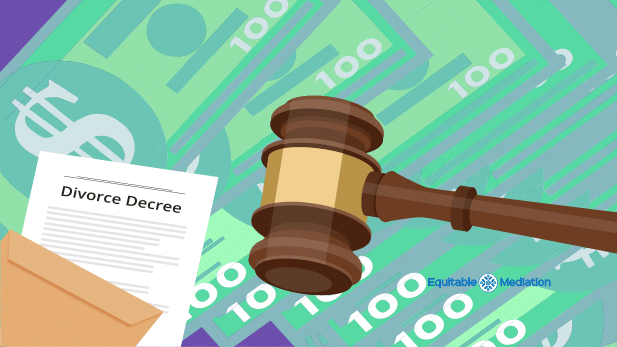How Much Does It Cost To File For (and Finalize) A Divorce

No one ever anticipates needing to file for a divorce – but the reality is that the process, from start to finish, can be extremely expensive. The good news is that there are ways to help mitigate potential costs and keep them within manageable limits, but it’s important to understand what expenses may arise when going through the legal process of a divorce. Read on for an overview of potential costs associated with filing for (and finalizing) a divorce.
Typical Divorce Filing Fees
When filing for divorce in a state court, typically you will have to pay an administrative fee as part of the paperwork required. This usually covers the cost of processing your paperwork and other related tasks such as mailing out notices and documents. Filing fees vary by state but generally average somewhere between $150-400 depending on where you live; if you need assistance with money management during this period, there are organizations like Legal Aid or even pro bono lawyers who may help to cover these types of expenses.
Settlement & Attorney Costs
If both parties agree on key issues like property division and child custody without having to go to court then there are usually minimal attorney costs associated with such agreements (or none at all). However if court proceedings become necessary or if negotiations prove difficult then the use of attorneys can become even more expensive – sometimes ranging from thousands or even up into tens of thousands depending on the complexity of each case. If you can reach an agreement and do an Alabama uncontested divorce, then it can be done much cheaper and quicker than a contested divorce.
Potential Tax Implications
In terms of tax implications, it’s important to know that any money or property transferred between divorcing couples must be reported in order for it not to affect one’s taxable income/assets down the road; same goes for spousal support payments which are always treated as income once received by either party though they may be deducted on certain tax forms after filing. In addition, specific items such as retirement accounts/401ks etc., come with their own set of considerations so it’s essential that couples consult an accountant prior-divorce in order to stay on top of these requirements!
Other Considerations
It’s best practice before filing for a divorce to take stock of all outstanding debts/assets so that nothing gets overlooked during proceedings; this includes taking care of credit card/loan balances which could affect future credit scores etc.. Other considerations should include changing beneficiaries on insurance policies/bank accounts etc., as well as updating wills in order avoid any potential confusion post-divorce. Similarly registering whatever name changes happen afterwards due to hyphenation/restoration etc., should also not be forgotten about since it can make obtaining new documents like driver licenses a lot smoother come time!
All in all – though it varies from place-to-place, understanding what type financial obligations may be expected when going through a divorce is essential in order maintain relative stability post-process – from knowing how much filing fees run up too factoring in potential taxes owed – accumulating information beforehand makes sure everyone is taken care off throughout this tumultuous period.






